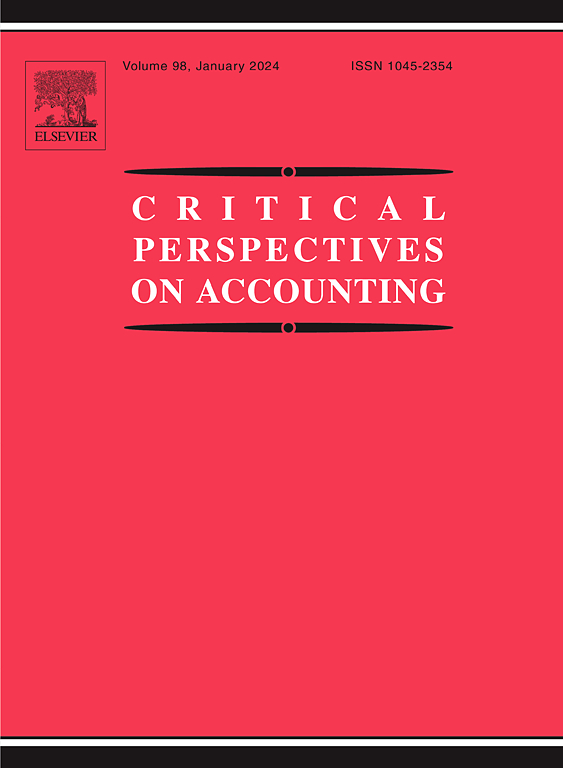调解环境、社会和治理:绘制个人对不断变化的领域的反应图
IF 5.7
2区 管理学
Q1 BUSINESS, FINANCE
引用次数: 0
摘要
以往的研究呼吁对环境、社会和治理(ESG)投资的人文维度进行更多研究。本研究通过对在英国爱丁堡市工作的 57 位基金经理和投资分析师进行正式访谈和非正式谈话,探讨了传统投资者如何应对 ESG 投资的增长。我们归纳出投资者采取的六种不同立场:理想主义者、颓废的理想主义者、热情的调解者、有节制的调解者、现代化者和传统主义者。本文通过识别和讨论这些不同的立场,为环境、社会和治理投资文献做出了贡献;主要的理论贡献在于对调解人的立场和角色提出了新的概念。本文章由计算机程序翻译,如有差异,请以英文原文为准。
Mediating ESG: Mapping individual responses to a changing field
Previous studies have called for more research into the human dimension of environmental, social and governance (ESG) investing. Drawing on formal interviews and informal conversations with 57 fund managers and investment analysts working in the city of Edinburgh, UK, this study explores how traditional investors have responded to the growth of ESG investing. We derive abductively six different positions which investors adopt: the Idealist, the Jaded Idealist, the Enthusiastic Mediator, the Tempered Mediator, the Moderniser and the Traditionalist. The paper contributes to the ESG investing literature by identifying and discussing these different positions; the main theoretical contribution is a new conceptualisation of the position and role of the mediator.
求助全文
通过发布文献求助,成功后即可免费获取论文全文。
去求助
来源期刊

Critical Perspectives on Accounting
BUSINESS, FINANCE-
CiteScore
9.40
自引率
7.80%
发文量
91
期刊介绍:
Critical Perspectives on Accounting aims to provide a forum for the growing number of accounting researchers and practitioners who realize that conventional theory and practice is ill-suited to the challenges of the modern environment, and that accounting practices and corporate behavior are inextricably connected with many allocative, distributive, social, and ecological problems of our era. From such concerns, a new literature is emerging that seeks to reformulate corporate, social, and political activity, and the theoretical and practical means by which we apprehend and affect that activity. Research Areas Include: • Studies involving the political economy of accounting, critical accounting, radical accounting, and accounting''s implication in the exercise of power • Financial accounting''s role in the processes of international capital formation, including its impact on stock market stability and international banking activities • Management accounting''s role in organizing the labor process • The relationship between accounting and the state in various social formations • Studies of accounting''s historical role, as a means of "remembering" the subject''s social and conflictual character • The role of accounting in establishing "real" democracy at work and other domains of life • Accounting''s adjudicative function in international exchanges, such as that of the Third World debt • Antagonisms between the social and private character of accounting, such as conflicts of interest in the audit process • The identification of new constituencies for radical and critical accounting information • Accounting''s involvement in gender and class conflicts in the workplace • The interplay between accounting, social conflict, industrialization, bureaucracy, and technocracy • Reappraisals of the role of accounting as a science and technology • Critical reviews of "useful" scientific knowledge about organizations
 求助内容:
求助内容: 应助结果提醒方式:
应助结果提醒方式:


